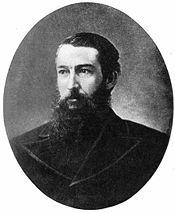- |
User Links
Sidney Lanier

www.hymntime.com/tch
| Short Name: | Sidney Lanier |
| Full Name: | Lanier, Sidney, 1842-1881 |
| Birth Year: | 1842 |
| Death Year: | 1881 |
Lanier, Sidney, born at Macon, Ga., Feb. 3, 1842, and educated at Oglethorpe College, Ga., where he graduated in 1860. He was one of the earliest volunteers in the Confederate Army, and after the war he devoted himself to music and literature. He died at Lynn, N.C., Sep. 7, 1881. His Poems were collected and pub. by his widow (New York), in 1884. Two of his hymns are:—
1. Thou God, Whose high eternal love. [Holy Matrimony.] This is dated "Macon, Sep. 1865," and is found in his Poems, p. 233.
2. Into the woods my Master went. This is a poem rather than a hymn, and might pass for a carol. It is given as No. 745 in the Methodist Hymnal, N.Y., 1905.
In early life Lanier was a member of the Presbyterian Church, but gradually lost sympathy with organised Christianity. [Rev. L. F. Benson, D.D.]
--John Julian, Dictionary of Hymnology, New Supplement (1907)
============
See also in:
| Texts by Sidney Lanier (6) | As | Authority Languages | Instances |
|---|---|---|---|
| As the marsh hen secretly builds on the watery sand | Sidney Lanier (Author) | English | 2 |
| Dans le jardin, mon Roi s'en alla | Sidney Lanier (Author) | French | 2 |
| In the heart of the hills of life | Sidney Lanier (Author) | English | 2 |
| Into the woods my Master went | Sidney Lanier (Author) | English | 63 |
| Let no man say, he at his lady's feet | Sidney Lanier (Author) | English | 2 |
| Thou God, whose high, eternal love | Sidney Lanier (Author) | English | 2 |


 My Starred Hymns
My Starred Hymns


